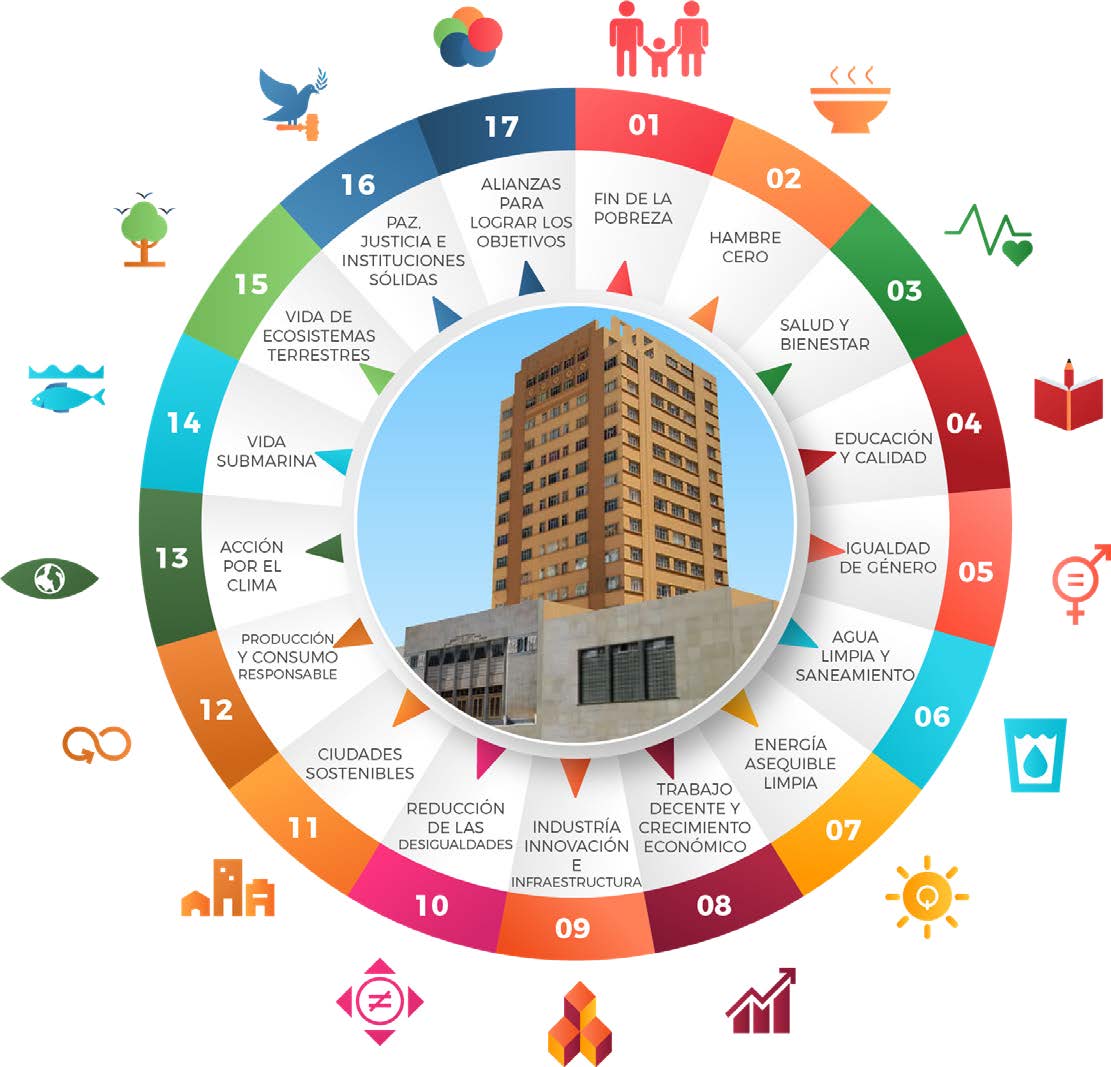¿What are the SDGs?
The Sustainable Development Goals (SDGs) are targets adopted by world leaders to address global challenges. These goals, part of the 2030 Agenda, aim to promote sustainable development in areas such as eradicating poverty, ensuring gender equality, providing clean water and sanitation, and combating climate change.
Contributing to the
SUSTAINABLE DEVELOPMENT GOALS (SDGs)
With 7 years to achieve the United Nations Sustainable Development Goals (SDGs), the UMSA/Sida Program contributes to meeting these challenges and goals that require shared will and efforts among all social actors, academia and its researchers, businesses, and the State with its decision-makers. The 20 research subprograms for doctoral training of the UMSA/Asdi Program currently in execution, detailed below, contribute to the SDGs.
UMSA/Sida Subprograms Contributing to the SDGs

SDG 2 - Zero Hunger
• Valorization of Bolivian foods through functional macromolecular components.
• Bioinputs: Biocontrol of fungal pathogens in coffee. Microbial treatment for quinoa growth.
• Research on the production of biopolymers from quinoa waste using halotolerant bacterial isolates from the Bolivian Altiplano.

SDG 3 - Health and Well-being
• Biocontrol techniques and proteins to improve agricultural productivity.
• Zoogenetic resources for sustainable use.
• Biological control using bacteriophages and/or their derivatives for the main bacterial pathogens (foodborne bacteria and/or antibiotic-resistant bacteria).
• Agricultural Biotechnology: Bio-inputs from Agro-industrial Waste.
• Diarrheal diseases.
• Type 2 Diabetes: Nutraceuticals and Clinical Research.
• Biomolecules of medicinal and industrial interest: Antiparasitic biomolecules.
• Biomolecules of medicinal and industrial interest: Anti-Cancer Biomolecules.

SDG 6 - Clean Water and Sanitation
• Hydrogeology and biogeochemistry of water and soil.

SDG 7 - Affordable and Clean Energy
• Materials, nanomaterials, and renewable energies for sustainable rural development.
• Production of renewable materials and applications.
• Improvement of renewable chemical processes.

SDG 9 - Industry, Innovation, and Infrastructure
• Support for innovation management at the Universidad Mayor de San Andrés.

SDG 12 - Responsible Production and Consumption
• Non-metallic Mineral Products.

SDG 15 - Life on Land
• Historical Ecology of the "Andean Amazon Foothills".
• Migration and the challenges of gender/identity dynamics and climate change.

SDG 17 - Partnerships for the Goals
• Strengthening the management of research, graduate studies, and social interaction at the Universidad Mayor de San Andrés.
